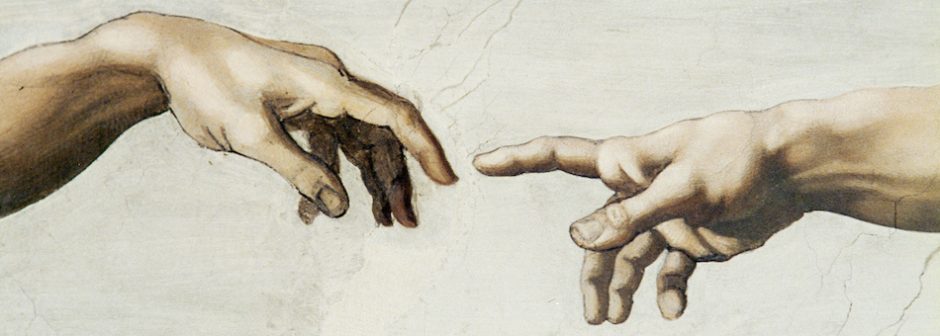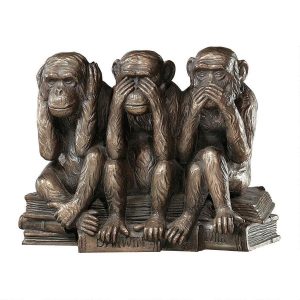If you wish, you can hear this sermon as it was preached in the pulpit of the United Church of Jaffrey. Simply click to the play button below.
Delivered at the United Church of Jaffrey
March 18th, 2018
John 12:20-33 | Excerpt From Frederick Buechner’s Wishful Thinking
Whether your faith is that there is a God or that there is not a God, if you don’t have any doubts, you are either kidding yourself or asleep. Doubts are the ants in the pants of faith. They keep it awake and moving… In my head there is almost nothing I can’t doubt when the fit is upon me-the divinity of Christ, the efficacy of the sacraments, the significance of the church, the existence of God. But even when I am at my most skeptical, I go on with my life as though nothing untoward has happened. — Frederick Buechner
The Question
 A Christian is a person who believes in God.
A Christian is a person who believes in God.
Aren’t you glad I cleared that up for you?
An atheist, on the other hand, is a person who does not believe in God.
Christian — God
Atheist — no God.
This “yes God/no God” distinction is one of the ways that we define ourselves in the cultural landscape of our contemporary world.
Christians over here.
Atheists over there.
We Christians believe in God and we come to church.
Atheists — a group that seems (to us) to be growing all the time — do not believe in God…
Why go to church, they ask… if there is no God?
And then there are the Agnostics, right?
Agnostics don’t commit to God’s existence, one way or the other because, they say, we’ll never know!
They take the position of uncertainty — which I can identify with, to a certain extent.
But though Agnostics are uncertain about God, they seem certain enough about not bothering with church — which I can’t identify with!
Agnostics, like their harder line Atheist brethren, tend to stay home on Sunday mornings, keeping company with things they are certain about — like a cup of coffee and Boston Globe magazine.
I am a Christian.
Yes, I believe in God.
That’s why I am here, with you today, in this beloved place.
But I think, as a culture, we’re thinking about this whole Christian/Atheist/Agnostic business in the wrong way.
If I’m not mistaken, most folks decide whether they consider themselves
Religious,
or Atheists,
or Agnostics,
by the answer they give to one question:
Does God exist?
But, if you will forgive me, I think this is the wrong question.
Do we need to take a picture of God? Then, will we believe?
Do we need to know if God is male or female? Then, will we believe?
If we know how much God weighs? Then will we believe?
These are silly questions. They are a waste of time.
I hear Jesus saying “you are setting your mind not on divine things but on human things.”
These questions are silly, because, after all, they have nothing to do with it what it means to believe in something.
Evidence of the Senses
But Reverend Mark… an Atheist might say…
What about the scientific method?
We know a great deal about our world because we make careful observations that we then test.
When we take a pictures of something and weigh it, we know something about that thing.
We believe in the evidence of our senses.
Sure, that makes sense, after all, we interact with the world through our senses, so how else can we gather the necessary evidence to believe in something, other than through the use of senses?
But is this the only way that we believe?
What if you are blind or deaf? Are you incapable of believing anything?
Certainly not!
Surely belief is helped by the evidence of the senses, but it would be wrong to say that it depends entirely on the evidence of the senses alone.
Or it shouldn’t anyway because there are times when, we have to admit, our senses are not terribly reliable.
A Voice from Heaven
Take today’s scripture lesson, for example.
I am struck by the moment, in the passage that Dorothy read for us, when, in a moment of concern, Jesus says: “Father, glorify your name…”
And, the text says:
Then a voice came from heaven, “I have glorified it, and I will glorify it again.”
A voice came from heaven!
And when the crowd, who was gathered, heard the sound, did they fall down in fear at the presence of God?
That’s what you would expect.
But, the text says…
The crowd standing there heard it and said that it was thunder. Others said, “An angel has spoken to him.”
Imagine that!
…the people who were actually there — the witnesses — the people who could look at and touch Jesus — even they were uncertain.
God spoke directly to them, and they thought it was thunder!
These dunderheads were so thick that Jesus had to point out to them that “This voice has come for your sake, not for mine…”
If the people who actually saw Jesus, and heard God’s voice… if even they could not be certain about the existence of God, how are we, you and I, who are separated from Jesus by more than two thousand years, and countless generations… how are we to believe in the existence God?
Ultimately, as the Agnostics are fond of pointing out, the idea of proving God’s existence seems a futile endeavor.
But that does not make me throw up my hands, call the whole thing off, and decide to stay at home on Sunday mornings with a cup of coffee and the Boston Globe.
No.
I think it’s time we asked a different question
A New Question
Instead of asking: Does God Exist?
Let’s ask: What is belief?
What does it mean to “believe” in something?
This question is never asked, and I think it is worth investing.
Is it necessary — for example — to be certain about something, in order to believe in it?
Our tendency is to say “Yes… you have to be certain about something to believe in it.”
But is this true to our lived expereince?
We believe, for example, that science and technology enhances our lives…
but can we claim to be certain that science and technology has only done good things.
The Atomic bomb was a scientific accomplishment.
The industrial revolution set the stage for Climate change.
What about America? We all believe that America is a great country.
But can any of us claim to be certain that everything America has done is great?
I don’t think so.
No matter how patriotic you are, you must admit that many awful things have been done in the name of this country.
When we were young, no doubt, most of us believed in strength of our bodies.
Well, all you need to do is live long enough to know that the body is nothing if it is not uncertain.
And yet, we believe in technology.
we believe in America.
we believe in our bodies.
Belief does not require certainty.
We can be uncertain, and still believe.
Uncertainty is an important part of my faith.
The importance of Doubt
If I felt that I had to be certain about my faith, I would find it difficult to be a religious person.
This meay seem a weird thing to say and I’m not suggesting that everyone has to feel this way but religion, for me, has very little to do with certainty. When I say that I believe in God I am not claiming to be certain about anything accept of the existence of great mystery.
The famous image from the Sistine chapel that is on the cover of the bulletin this morning shows Adam’s hand not quite touching the hand of God.
God’s hand is outstretched yearning for that touch, but the touch is not quite there.
Christianity is not a prescription that will solve all of life’s problems.
If you want a prescription, go to your doctor.
If you want a description, go to the Bible.
Prescription answers a question.
Description keeps the question moving around.
I love what Reverend Frederick Buechner writes in today’s modern reading:
 “Doubts,” he writes “are the ants in the pants of faith. They keep it awake and moving…”
“Doubts,” he writes “are the ants in the pants of faith. They keep it awake and moving…”
We have been taught to think that if we doubt we sin against God.
But I like Buechner’s way of thinking better.
Doubt is not a force that acts against faith, it actually strengthens our faith by keeping it active.
Truth moves. So our hearts and our minds must also move.
If we had no doubts — no ants in the pants of our faith — our faith would become complacent — nothing more than a habit.
To believe, than, is to be in a state of creative uncertainty.
A New Meaning
I’m already over time, but there is one final, amazing thing that I discovered in the process of writing this sermon that I simply must share with you in conclusion.
I decided to look up “believe” to find out the word’s origin… and guess what?
The word believe is thought to have originated from a Proto- Indo-European root “leubh” which means “to care, desire, love.”
Wow!
“to care, desire, love.”
That changes things doesn’t it?
We are no longer talking the language of verification.
I believe in God, is no longer about proving anything.
Now, I believe in God means
I care for God.
I desire God.
I love God.
Amen.


